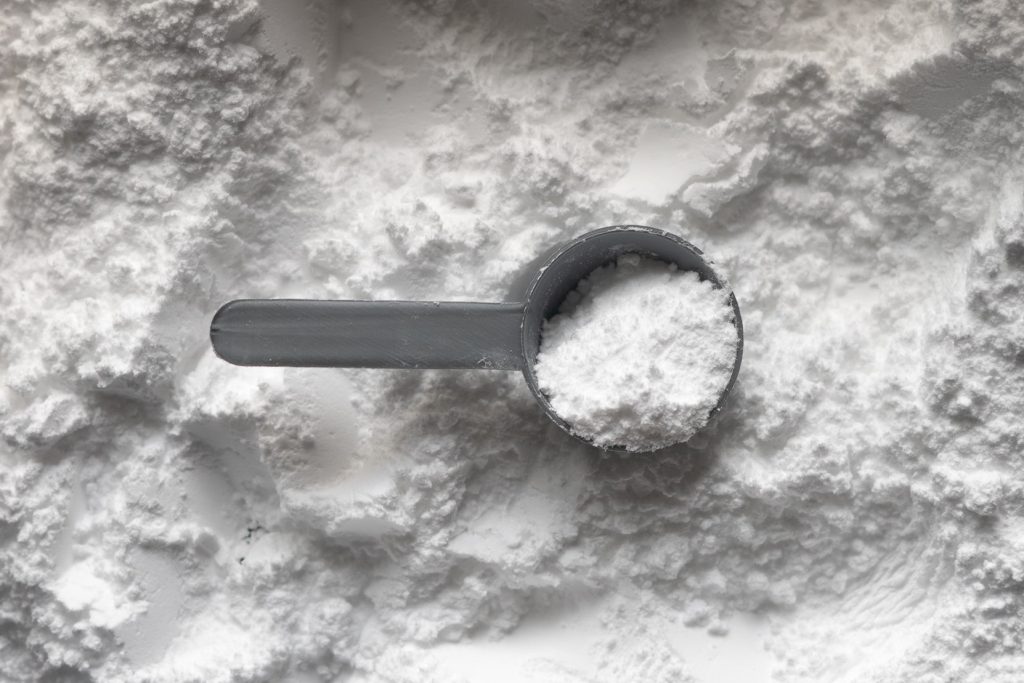Creatine is a popular supplement among athletes that is a hot topic of discussion. Gabrielle Trépanier, a sports registered dietitian certified by the International Olympic Committee, provides an update on this supplement.
- What is creatine?
It is an amino acid derivative that is naturally present in muscles and in the brain. It provides energy to muscles during short, high-intensity efforts (<30 seconds).
- What is this supplement used for?
It increases creatine stores in the muscles, which can improve performance during short, intense workouts.
- Is it possible to get creatine in food?
Yes, it is possible to get creatine from certain foods, such as meat and fish. However, food alone is not enough to increase muscle reserves to the level required to improve performance.
- Is creatine a doping substance?
No, creatine is a legal supplement for athletes of all levels. However, it is important to select a supplement that has been tested by an independent organization (e.g. NSF, Informed Sport) to ensure that the product is not contaminated by prohibited substances.
- Is this supplement relevant for me if I am training?
It depends on the type of training. This supplement is not relevant for all athletes.
Here are some contexts in which supplementation may be beneficial:
- Sports that involve maximal effort of less than 30 seconds such as: sprints, powerlifting, weightlifting and some weight training programs.
- Sports that involve repeated high intensity efforts such as team and racket sports.
- When high-intensity intervals are undertaken during endurance training.
- To aid recovery after muscle mass loss, as a decrease in muscle creatine stores is observed in this context.
- To help recovery following a concussion.
- At what level of training is it relevant?
The athlete must evaluate the costs versus the benefits before making a decision. However, it is never mandatory to consume it. Short-term creatine supplementation improves maximal power and strength by 5-15%, single sprint performance by 1-5%, and repeated sprint performance by 5-15%. Knowing that a creatine supplement costs about $50 for 300g, each athlete can then evaluate if this investment is worth it in relation to their goals and level.
- Is this supplement safe?
Creatine is a supplement that has been widely studied. No health risks in healthy individuals have been identified.
In conclusion, there are many misconceptions surrounding creatine, but it is a safe supplement that can provide performance benefits. It is important to remember that a supplement will never compensate for poor nutrition, recovery and training and should only be considered when the basis of sports performance is already optimized. For more information on this subject, it is possible to book an appointment with one of our dietitians.
REFERENCES
Australian Institute of Sport (2021). Ais sports supplement framework: Creatine monohydrate. Repéré à: https://www.ais.gov.au/__data/assets/pdf_file/0007/1000501/Sport-supplement-fact-sheets-Creatine-v4.pdf
Dolan, E., Gualano, B. & Rawson, E. S. (2019). Beyond muscle: the effects of creatine supplementation on brain creatine, cognitive processing, and traumatic brain injury. Eur J Sport Sci 19(1): 1-14.
Kreider RB. Effects of creatine supplementation on performance and training adaptations. Mol Cell Biochem. 2003 Feb;244(1-2):89-94. PMID: 12701815.
Kreider, R. B., Kalman, D. S., Antonio, J., Ziegenfuss, T. N., Wildman, R., Collins, R., Candow, D. G., Kleiner, S. M., Almada, A. L. & Lopez, H. L. (2017). International Society of Sports Nutrition position stand: safety and efficacy of creatine supplementation in exercise, sport, and medicine. J Int Soc Sports Nutr 14: 18.

